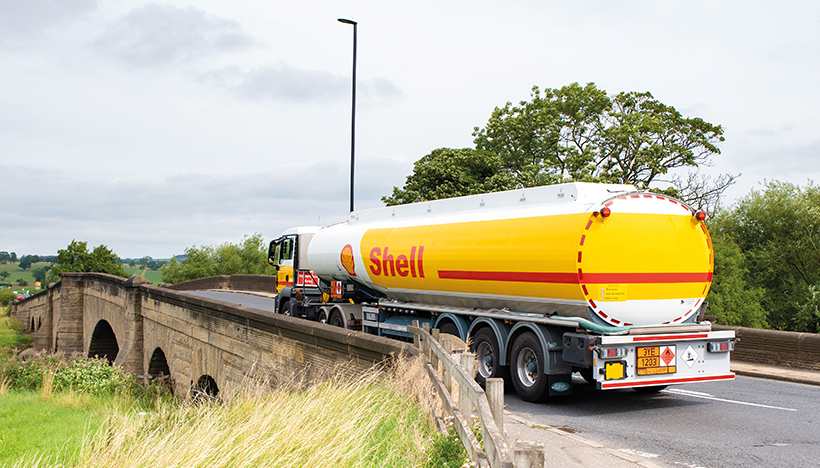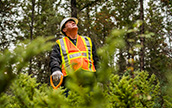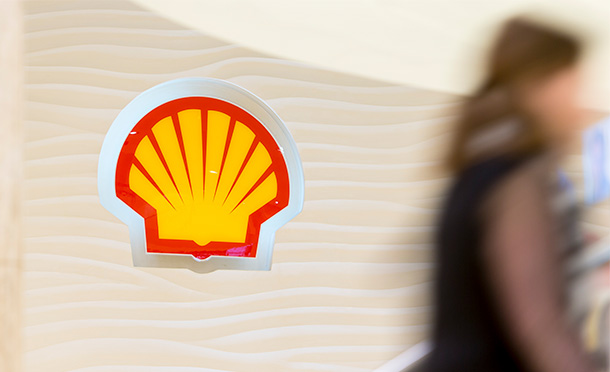Safety
Shell’s Powering Progress strategy is underpinned by our focus on safety. We aim to do no harm to people and to have no leaks across our operations. We call this our Goal Zero ambition.
We seek to improve safety by focusing on the three areas where the safety risks associated with our activities are highest: personal, process and transport. We strive to reduce risks and to minimise the potential impact of any incident, with a particular emphasis on the risks with the most serious consequences if something goes wrong. In 2021, we introduced a new measure to report on our personal safety performance, known as Serious Injury and Fatality Frequency (SIF-F).
This new measure is one example of how we have updated our thinking about safety, how we learn from incidents with potential to cause life-altering injuries, and how leaders should respond. In 2020, we started a multi-year process of refreshing our approach to safety for all employees and contractors. Our updated approach to safety is rooted in a consistent focus on human performance, by which we mean the way people, culture, equipment, work systems and processes all interact. The majority of our fatalities over the last five years were down to the interaction between these elements.
We aim to better understand the gap between how we anticipate work will be done safely and how the work is actually carried out. We continue to work to prevent incidents by maintaining safety barriers and providing training. We acknowledge that people make mistakes and not all incidents may be preventable. We continue to focus more on installing adequate controls to create capacity to fail safely. With that, we believe that we will enhance our safeguards and reduce the likelihood of serious injuries.
We recognise that people are key to executing complex tasks and to finding solutions to problems. We aim to apply a learner mindset, by which we mean the belief that we can always improve, enhance individual capabilities, learn from mistakes and successes, and speak up without being punished. We seek to create conditions that encourage employees and contractors to share ideas and concerns without fear of rejection or punishment.
We work with the large number of our contractors and suppliers so they understand our safety requirements. Together we seek to improve safety performance by building skills and expertise, and by creating an inclusive and safe work environment. We strive to help improve safety throughout the energy industry by sharing our safety standards and experience with other operators, contractors and professional organisations, such as the Energy Institute, the London-based global professional body for the energy sector; IPIECA, the global oil and gas association for advancing environmental and social performance across the energy transition; and IOGP, the international association of the upstream oil and gas industry.
Shell also continues to use technology and digital solutions to help keep people and our operations safe. Drones, remote sensing technologies, robots and other technologies, such as augmented reality, help us keep people out of harm’s way. For example, we use drones and robots to conduct inspections, reducing the need for human inspectors to enter hazardous environments. We also use various technologies and devices to help frontline employees stay safe and react quickly should an incident occur.
Personal safety
We continue to strengthen the safety culture and leadership among our employees and contractor staff. This aligns with our focus on caring for people.
We expect everyone to consider two aspects of their tasks: the hazards that could potentially cause serious harm, and the effectiveness of the barriers in place to avoid serious harm if something does happen. We have ongoing safety awareness programmes, and hold an annual global Safety Day to give employees and contractors time to reflect on how to prevent incidents and how we can work together to improve performance.
In September, during Safety Day 2021, we began the transition to a new set of nine industry Life-Saving Rules which came into effect from January 2022. All our staff and contractors were given time to reflect on how these rules apply to everyday activities, and how to put them into practice applying the human performance and learner mindset guidelines. Introducing the industry Life-Saving Rules has been an opportunity to strengthen the way we learn from adverse incidents and to simplify and standardise processes and procedures. Safety Day marked the start of a series of engagements. We encouraged team leaders to hold additional conversations with their team to help further understanding of the nine industry Life-Saving Rules and together create the conditions to enable these rules to be followed. This is particularly important with the new line of fire rule. This states that people must ensure that they and others are out of the way of potential pressure releases, vehicles that might move, or objects that could fall, drop or move. Analysis of safety incidents at Shell-operated ventures showed that many of our most serious events related to the line of fire rule. By the end of 2021, more than 90,000 of our employees and contractors had already completed the mandatory updated training for the Life-Saving Rules.
See our website shell.com for more information on Life-Saving Rules guidance for contractors.
Transitioning to industry Life-Saving Rules
Despite an improving trend, we still experience serious injuries
Recordable fatalities, TRCF and SIF-F
Process safety
Process safety management is about keeping hazardous substances inside pipes, tanks and vessels, and ensuring that well fluids are contained during well construction and well intervention so that they do not harm people or the environment. It starts at the design and construction stage of projects and continues throughout the life cycle of facilities to ensure they are safely operated, well maintained and regularly inspected.
For example, we embedded safety in the design and construction of the Falcon Ethane Pipeline System in the USA, which was commissioned in 2021. We used pipe with thicker walls and buried it deeper than required by regulations. We used ultrasound and X-ray equipment to test welds before use. The pipeline is designed to withstand almost twice the normal operating pressure.
Our global standards and operating procedures define our expectations for the controls and physical barriers required to reduce the risks of incidents. For example, offshore wells must be designed with at least two independent barriers in the direction of flow, in order to reduce the risk of an uncontrolled release of hydrocarbons. We regularly inspect, test and maintain these barriers to ensure they meet our standards. For example, at the West Delta Deep Marine joint venture assets (Shell interest 50%, not operated by Shell), off the coast of Egypt, more than 750 kilometres of hydrocarbon-carrying pipelines were inspected for their integrity using a technique based on screening pipelines by electro-magnetic waves. Since 2017, until end of 2021, 540 kilometres were confirmed safe. We expect to check the remaining 210 kilometres of concrete-coated pipe in 2022 using a method that helps to inspect pipelines by analysing their magnetic field.
We strive to learn not only from leaks that happened, but also from potential events that were prevented by our barriers. Spending time monitoring and learning from high-potential events – avoided leaks which would have caused significant harm to assets and people – is necessary as our industry moves towards risk-based classification of leaks. In the event of a loss of containment such as a spill or a leak, our standards require the use of independent recovery measures to stop the release from becoming catastrophic. We have embedded a set of process safety fundamentals in order to strengthen barriers relating to critical safety tasks performed by frontline staff. These fundamentals provide guidelines for good operating practices to prevent unplanned releases.
We routinely prepare and practise our emergency response to potential incidents such as a spill or a fire. This involves working closely with local services and regulatory agencies to jointly test our plans and procedures. These tests continually improve our readiness to respond. If an incident does occur, we have procedures to reduce the impact on people and the environment.
In August and September 2021, Hurricane Ida posed a potential safety risk to millions of people across the Gulf Coast region. Thousands of Shell employees, contractors, and their families were affected. Hurricane Ida also threatened Shell’s onshore and offshore assets in the region. Years of planning and learning through exercises enabled Shell’s emergency response teams to efficiently take care of employees and minimise the disruption of our business. We conducted extensive training at our sites between May and July 2021, so that our teams were ready to react when the hurricane hit.
Shell helped with disaster response and recovery efforts in the aftermath of Hurricane Ida, playing our part in assisting employees and neighbours in the communities where we work. We supported employees and communities in the Gulf Coast region and also in Pennsylvania, New York and New Jersey. For example, we distributed assistance packages to more than 400 employees in need. We also established base camps in the Gulf Coast region at Shell’s Norco and Convent sites in Louisiana. These hosted more than 700 displaced individuals, employees required to remain on site, and electrical linemen working to restore power to communities. Shell had around 3,000 employees in the Gulf Coast region, and about 2,200 of them found themselves in an area that qualified as a natural disaster zone.
Transport safety
Transporting large numbers of people, products and equipment by road, rail, sea and air poses safety risks. We seek to reduce these risks by developing best-practice standards within Shell. We also work with specialist contractors, industry bodies, NGOs and governments to find ways of reducing transport safety risks.
In 2021, Shell employees and contractors drove around 470 million kilometres on business in more than 50 countries. There were no fatalities related to road transport in activities under the operational control of a Shell company in 2021. By the end of December, we recorded more than 1.2 billion kilometres with no fatalities in almost two-and-a-half years.
We continually take steps to improve our road safety performance. For example, we implement best practice, encourage safe behaviour, and call for safe vehicle design. We run road safety programmes including our online defensive driving course that teaches safe techniques and behaviours and is mandatory for all who drive on public roads while on Shell business. In 2021, around 11,000 Shell employees and contractors completed some form of in-vehicle or virtual defensive driving training.
Falling asleep behind the wheel or being distracted while driving can lead to serious road accidents around the world. Our road transport fleets have begun deploying devices that detect signs of microsleeps, fatigue and distraction, and respond by warning drivers so they can take action to stay alert.
This deployment started in 2020, at the Shell-operated QGC facility in Queensland, Australia, where we worked with four universities and eight contracting companies to evaluate fatigue detection devices and to find the one that performed best in testing. The basis for this project was a scientific study commissioned by Shell, BP, TotalEnergies, and Chevron to review more than 100 commercially available technological systems that purported to detect fatigue or distraction in drivers.
We are adopting a phased approach to deploying the devices and ensuring drivers know how to use them. We will start in countries identified as high-risk locations: Australia, India, Malaysia, Mexico, Pakistan, Russia, South Africa, Thailand, Turkey and the Philippines.
In 2021, the UN General Assembly’s status report on road safety globally recognised Shell as being among the very few private-sector companies that have funded road safety projects and activities. We believe that collaboration is key to achieving the UN’s target to halve global traffic deaths by 2030, based on their estimations for incidents between 2021 and 2020. This is considered part of Sustainable Development Goal 3: ensure healthy lives and promote well-being for all at all ages. We remain determined to play our part in helping to achieve this, including through organisations such as the Global Road Safety Partnership. Shell has been a founding member of this partnership between businesses, development agencies, governments and civil-society organisations which took on the role to create and support multi-sector road safety partnerships that are engaged with frontline good practice road safety interventions in countries and communities throughout the world.

Contractor safety
Executives from Shell and our major contractor companies have been collaborating on Shell’s contractor safety leadership (CSL) programme since 2014. The programme seeks to identify strategies and practical ways to improve a shared safety culture and achieve our Goal Zero ambition of no harm and no leaks.
Importance of contractor safety for Shell
We have worked with contractors on standardisation and simplification, and collaborated to develop a contractor safety leadership initiative called Declared Future. We believe these efforts have helped to align our organisations at all levels and improve frontline safety.
Our transition to the industry Life-Saving Rules also brings us closer to the standard shared by most of the main contractor companies in our CSL programme. This was something they had requested of us.
Safety performance
Regrettably, in 2021, eight of our contractor colleagues in Shell-operated ventures lost their lives in the course of their work for Shell. So did a police officer who was with our colleagues in Nigeria. The Shell organisation feels these losses deeply. We are determined to learn from these incidents and spread the lessons from them throughout our organisation so we can do everything possible to prevent anything similar recurring.
The fatal incidents were as follows:
In Nigeria, six people working for an engineering contractor and a police officer lost their lives when gunmen attacked a convoy of buses transporting people to the Assa North Gas development project site. The Shell Petroleum Development Company of Nigeria (SPDC) worked with the contractor and supported the police during the investigation of the incident.
In Pakistan, a contractor colleague died after a fire at a dealer-operated retail site. Another contractor lost his life when a wall fell over during demolition work at a retail site in Indonesia.
Several industry safety leadership groups confirm that serious and high-potential incidents often have different root causes than most lower-consequence events. To improve insights from incident investigations and data analysis, we are changing how we report incidents. From 2021 onwards, we measure the number of serious injuries and fatalities per 100 million working hours, instead of the Total Recordable Case Frequency, which measured injuries per million working hours. The new measure, known as Serious Injury and Fatality Frequency (SIF-F), allows us to focus our investigations on the most serious incidents. The aim is to collect and analyse relevant, high-quality data that can help us improve our efforts to prevent serious injuries and fatalities.
In 2021, the SIF-F was 6.9 injuries and illnesses per 100 million working hours, compared with 6.0 in 2020.
There were 102 operational Tier 1 and 2 process safety events in 2021, compared with 103 in 2020.
For reporting on process safety, in this Report, we combine Tier 1 and 2 events. A Tier 1 event is an unplanned or uncontrolled release of any material from a process, including non-toxic and non-flammable materials, with the greatest actual consequence resulting in harm to employees, contract staff or a neighbouring community, damage to equipment, or exceeding a defined threshold quantity. A Tier 2 process safety event is a release of lesser consequence.
As part of Shell’s learner mindset approach, we investigate all serious incidents so we can understand the underlying causes, including technical, behavioural, organisational and human factors. We share what we learn widely, including with contractors. We implement mitigations at the site and in the country and business where the incident occurred. We seek to turn incident findings into improved standards or better ways of working that can be applied widely across similar facilities.
Additional information on our 2021 safety performance is expected to be published in the Shell Sustainability Report in April 2022.









